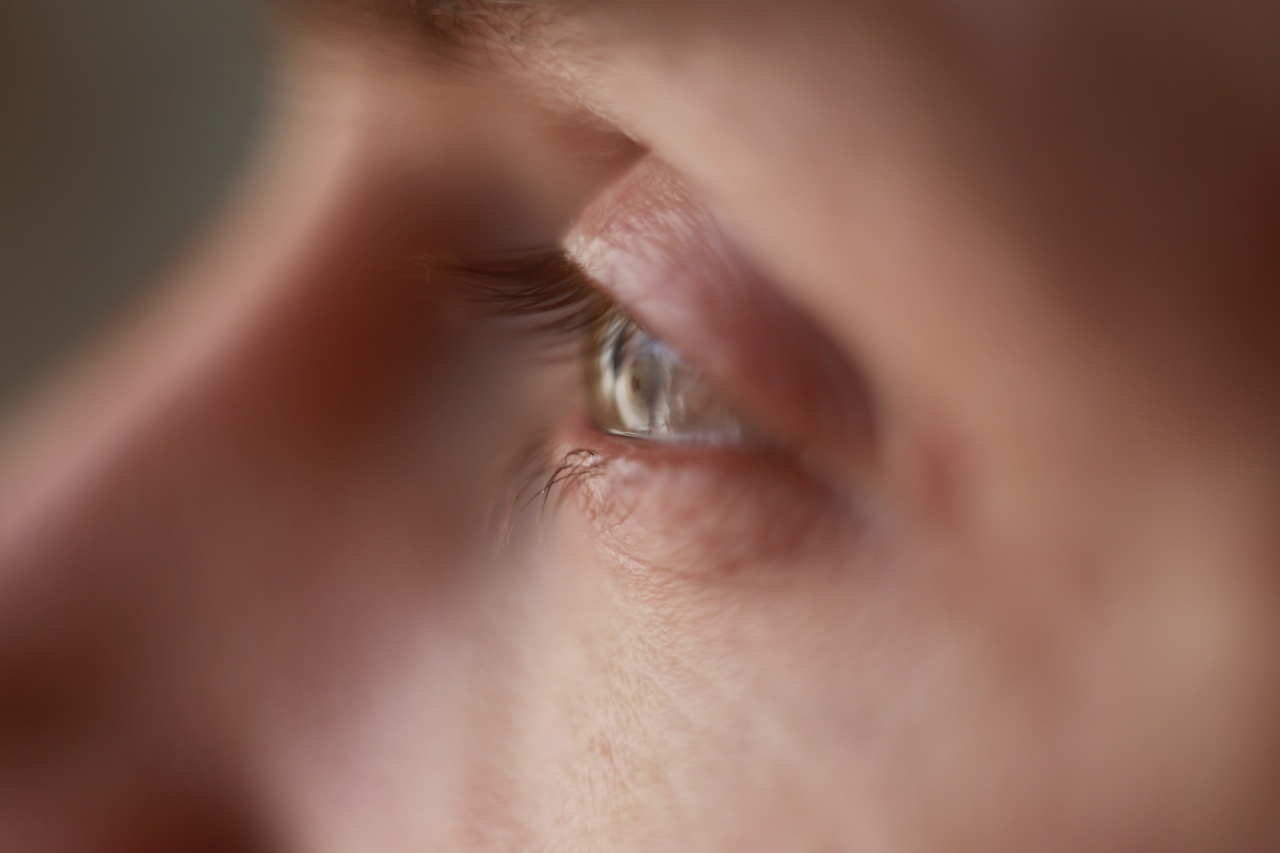Blurred vision is a common vision problem that can affect people of all ages. It refers to the loss of sharpness and clarity in eyesight, making objects appear hazy or out of focus.
Blurred vision can be a temporary or chronic condition, and its causes can range from minor to more severe underlying health issues. Understanding the potential causes of blurred vision and recognizing when to seek medical attention is crucial for maintaining optimal eye health.
Common Causes of Blurred Vision
Blurred vision can occur due to a variety of reasons, both mild and serious. Some common causes include:.
Refractive Errors
Refractive errors, such as nearsightedness (myopia), farsightedness (hyperopia), and astigmatism, are one of the leading causes of blurred vision. These conditions occur when the shape of the eye prevents light from focusing correctly on the retina.
Glasses, contact lenses, or refractive surgery can help correct these refractive errors and alleviate blurred vision.
Poorly Controlled Diabetes
Diabetes can affect the blood vessels in the eyes, leading to a condition called diabetic retinopathy. When blood sugar levels are consistently high, the blood vessels in the retina can become damaged, resulting in blurred vision.
Proper management of diabetes, including regulating blood sugar levels, can help prevent or slow down the progression of diabetic retinopathy.
Cataracts
Cataracts are a common age-related condition that causes the lens of the eye to become cloudy. This cloudiness can significantly impair vision, leading to blurred or fuzzy vision.
Cataracts often develop slowly over time and can be removed through surgery to restore clear vision.
Macular Degeneration
Age-related macular degeneration (AMD) is a progressive eye disease that affects the macula, the central part of the retina responsible for sharp, detailed vision.
As AMD progresses, it can cause blurred or distorted central vision, making it difficult to see fine details. Regular eye exams can help detect AMD early and prevent further vision loss.
Dry Eyes
When the eyes do not produce enough tears or the tears evaporate too quickly, it can result in dry eyes. Dry eyes can cause blurred or fluctuating vision, as well as discomfort, redness, and a gritty sensation.
Artificial tears, prescription eye drops, and lifestyle changes can help manage dry eye symptoms and improve vision clarity.
Medication Side Effects
Some medications, such as certain antidepressants, antihistamines, and blood pressure medications, can cause blurred vision as a side effect.
If you experience blurred vision after starting a new medication, consult with your doctor to discuss possible alternatives or adjustments to your dosage.
Eye Infections
Bacterial or viral infections can affect various parts of the eye, including the cornea and conjunctiva. These infections can cause eye redness, discharge, itching, and blurred vision.
Seeking prompt medical attention and following the prescribed treatment can help resolve the infection and alleviate blurred vision.
Migraines
Migraines are severe headaches that can be accompanied by visual disturbances, known as migraine aura. The aura may include blurred vision, flashing lights, zigzag lines, or temporary blind spots.
Managing migraine symptoms with medication and adopting a healthy lifestyle can help prevent migraines and associated visual disturbances.
When to Worry about Blurred Vision
While occasional or temporary blurry vision may not be a cause for concern, there are certain situations where it is essential to seek prompt medical attention. These include:.
Sudden Onset of Blurred Vision
If you experience a sudden and significant loss of vision, particularly in one eye, it may indicate a medical emergency.
Conditions such as retinal detachment or a stroke can cause sudden vision loss and require immediate evaluation by an eye specialist or emergency room.
Blurred Vision with Eye Pain or Redness
Blurred vision accompanied by eye pain, redness, sensitivity to light, or discharge can indicate an underlying eye infection or inflammation. These symptoms should be evaluated by an eye doctor to determine the cause and appropriate treatment.
Blurred Vision after an Eye Injury
If you injure your eye or experience a blow to the head, any subsequent blurred vision should be taken seriously. Injuries to the eyes can damage the delicate structures inside the eye, leading to blurred vision.
Immediate evaluation by an eye specialist is necessary to prevent potential complications.
Blurred Vision in One Eye Only
If you notice blurred vision in one eye while the other eye remains unaffected, it could be a sign of a serious condition such as a detached retina or a blockage in the eye’s blood vessels.
Prompt medical attention is crucial to prevent permanent vision loss.
Blurry Vision with Other Systemic Symptoms
When blurred vision is accompanied by other systemic symptoms such as severe headache, dizziness, weakness, or numbness, it could indicate an underlying health issue like a stroke or a neurological disorder.
Seeking immediate medical care is necessary to identify and address the underlying cause.
Conclusion
Blurred vision can occur due to various causes, ranging from mild refractive errors to more severe conditions like diabetic retinopathy and macular degeneration.
While occasional blurry vision may not be cause for concern, sudden onset, accompanying symptoms, or blurred vision in one eye should be evaluated by an eye specialist. Regular eye exams and maintaining general health can help prevent or identify potential vision problems early. If you experience any worrisome symptoms, consult with an eye care professional to ensure timely diagnosis and appropriate treatment.






























